You won’t get very far on a street in Sudan before you run into a sittet shai, a tea lady providing essential hot refreshments to passersby: tea, sometimes laced with cinnamon or mint; coffee, with flavours like ginger, cloves or cardamom; karkadeyh – hibiscus tea. Whatever the choice it will come totally saturated with sugar. Crouched on little chairs behind their paraphernalia and a charcoal burner with a steaming kettle, these ladies are an essential part of everyday life. Over the years, as the economy slumped, cafes became more and more unviable and a little window of opportunity opened up for women, often the marginalised who fled violence in regions like Darfur, who could sell tea and coffee more cheaply than large establishments.
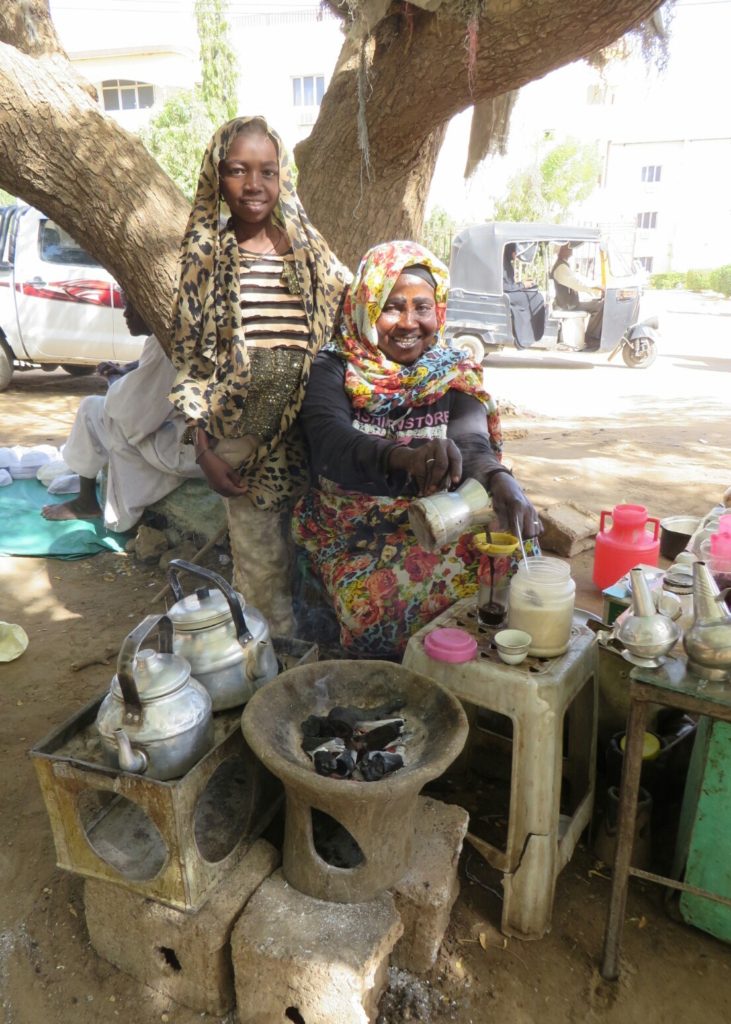
Zeinab and her daughter Alaya providing tea with a smile in Wad Madani
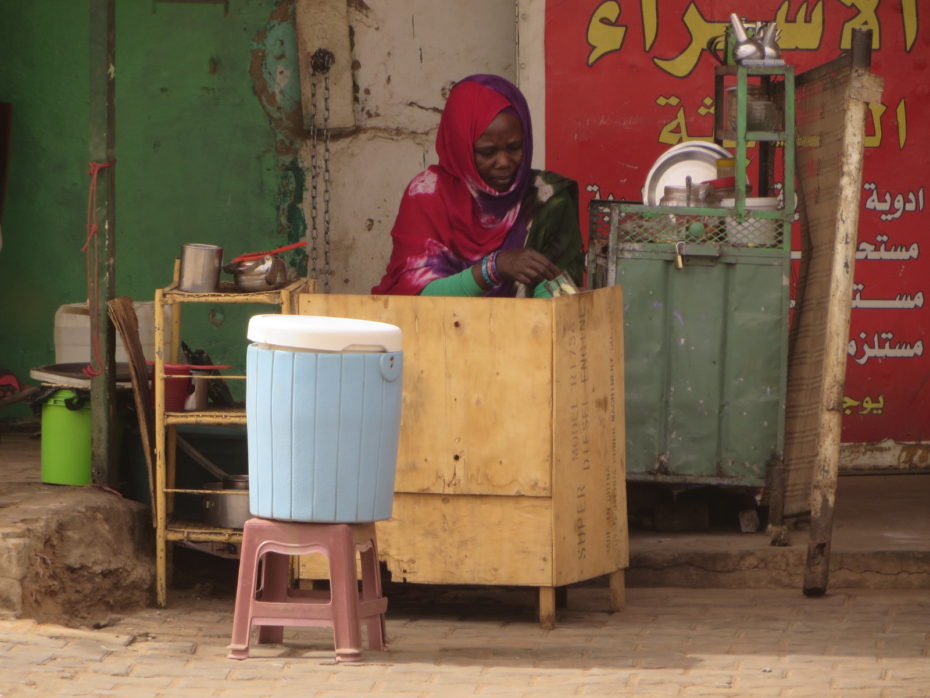
Tea lady in Atbara hard at work
What for us is seen as an entirely laudable effort at self-improvement in challenging circumstances isn’t always regarded so positively in this conservative nation, where some men still see it as unseemly for a woman to be working, particularly by herself in public. They are also regularly threatened by police who steal their money and equipment. Not to give in to such treatment, a union of women street sellers was set up by one seller, Awadya Mahmoud, to represent the 8000 or so workers in the capital Khartoum. She, with others have raised awareness of their struggle and done much to protect their interests and she was even awarded the International Women of Courage Award by the US State Department this year, recognising the years of dedication she has put in.
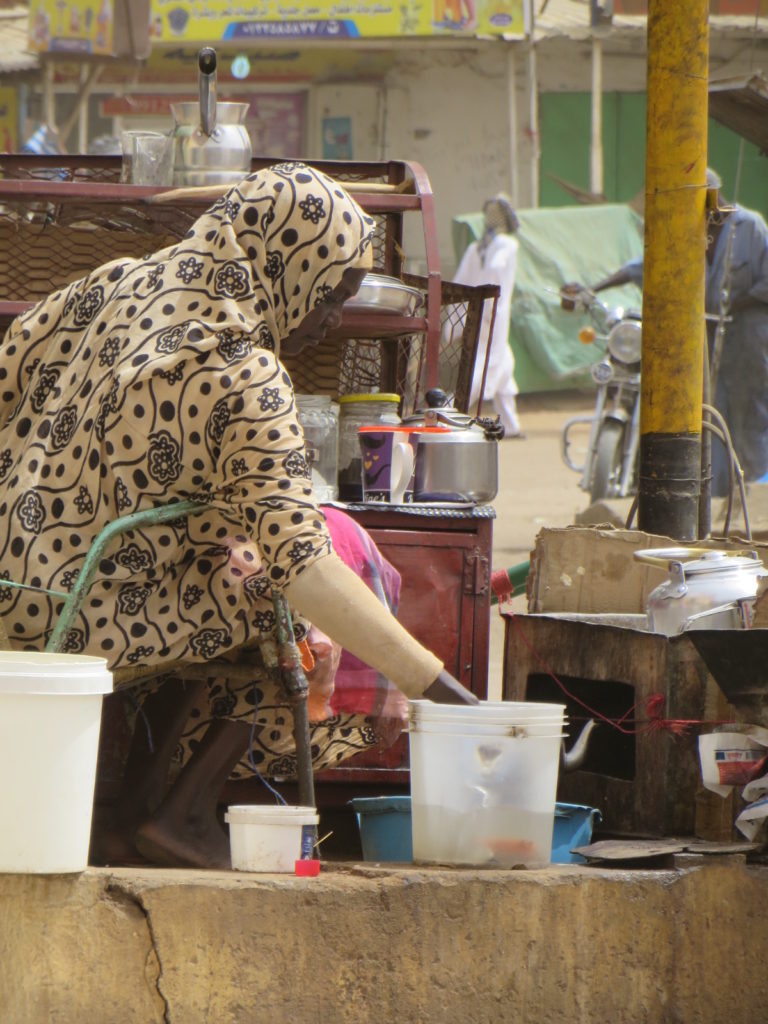
Cup washing isn’t always as thorough a process as you might like
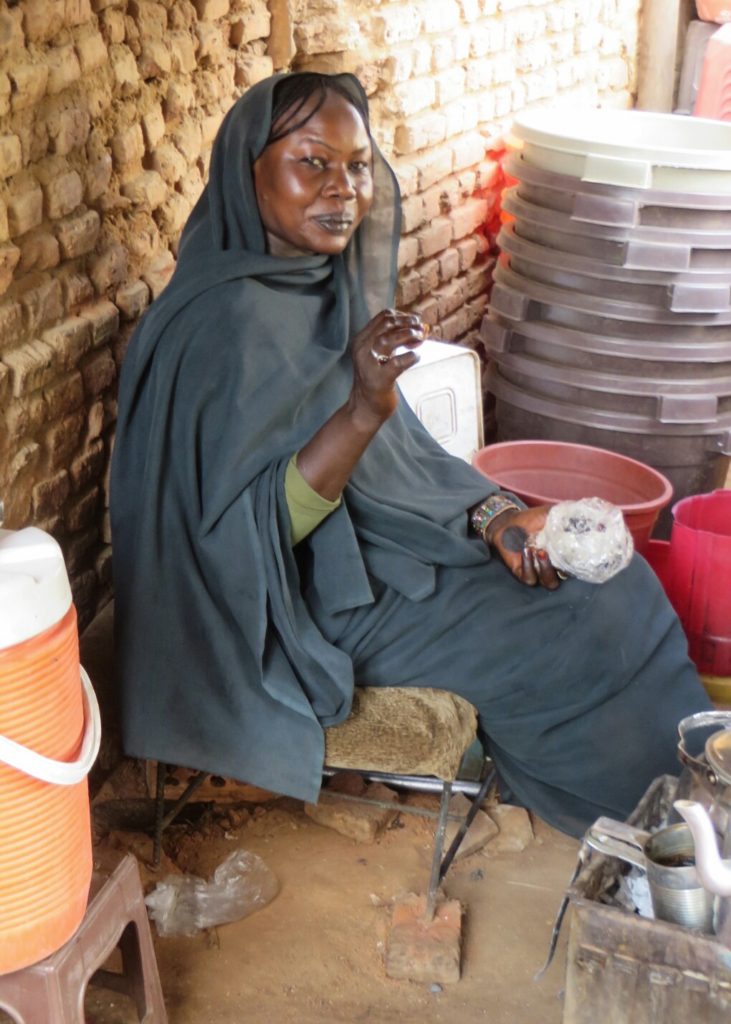
This lady gave me a free doughnut. What greater token of welcome is there?
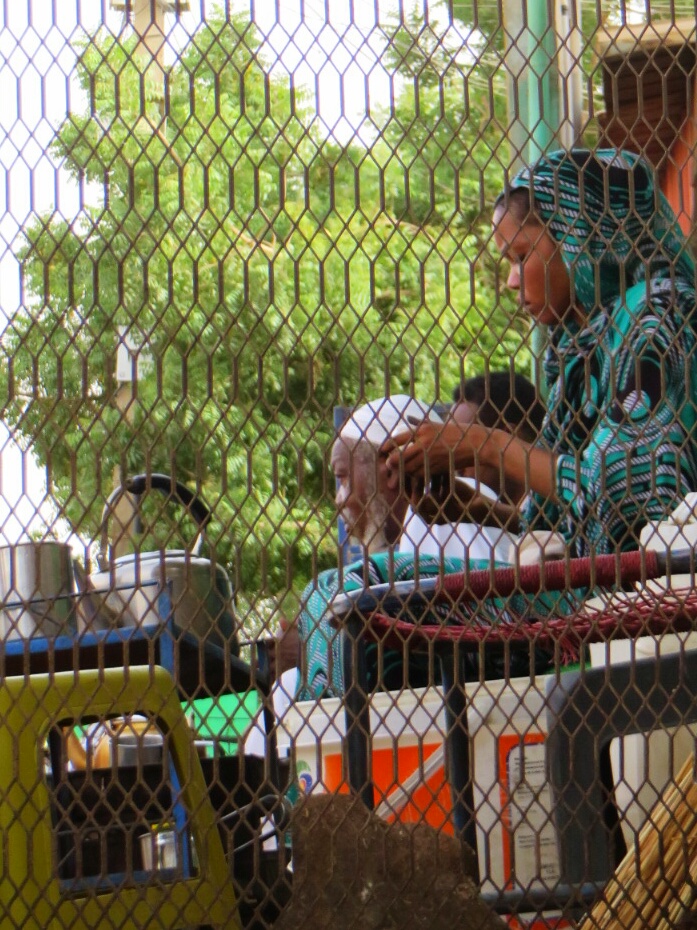
Tea behind the fence
Thankfully, many men, and the customers are only men, are only too happy to regularly stop by their favourite tea lady each day, where some modest seating arrangements provide a social hub, there’s always something to talk about in Sudan. I imagine diabetes is a popular subject given the sugar intake: often when I asked for shai biddun sukkar (tea without sugar) I was asked if I had diabetes, as sugar-free is an unknown concept for healthy Sudanese. From my foreigner’s point of view the ladies came over as a mixed bunch: some strangely surly and uncommunicative, others charming and chatty. Given the extremely challenging nature of their backgrounds I wouldn’t rush to comment on those who didn’t appear to be quite so gregarious.
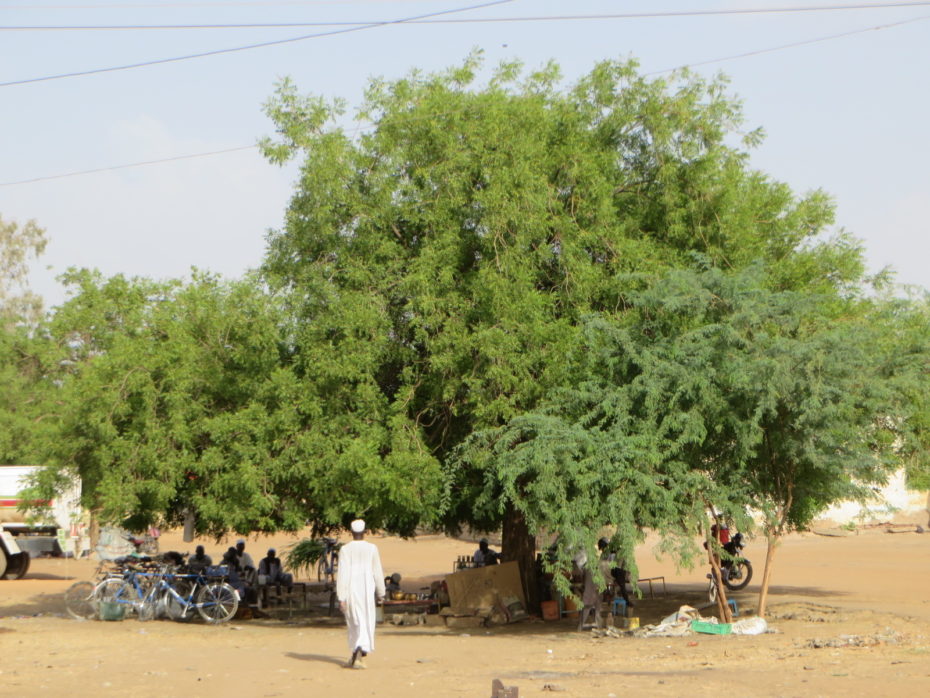
Tea and shade, possibly the two most important components of Sudanese social life
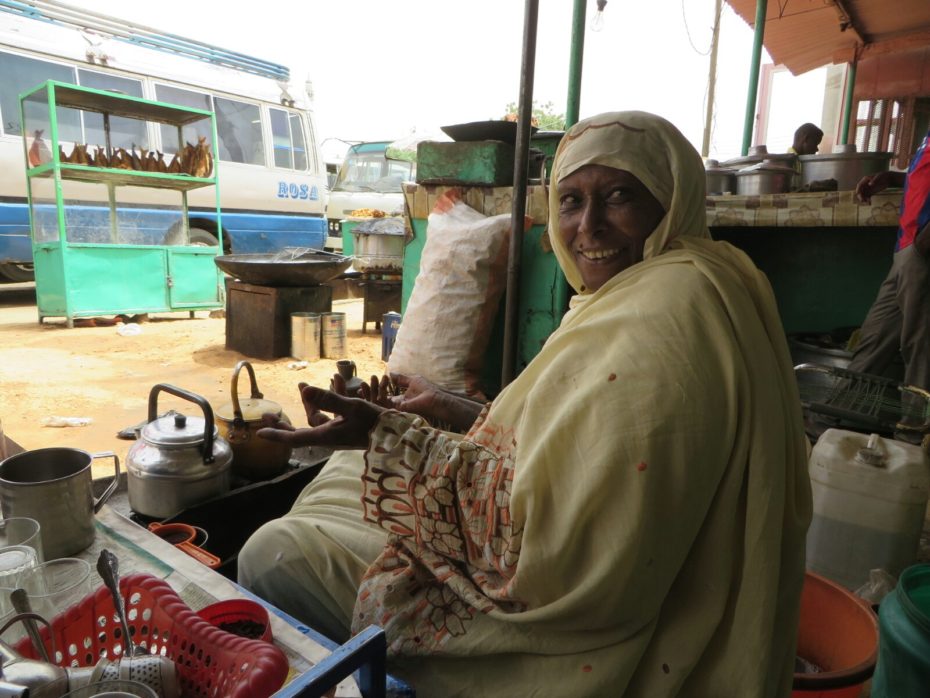
The wonderful Nafeeza in Al Obaid, the personification of Sudanese hospitality, undeterred by my limited skills in Arabic
Recent moves by the government to clamp down on the ladies, accusing some of prostitution or selling drugs (sadly I was offered neither), were clearly rejected by much of the population. Whatever happens the ladies are here to say, having become an integral part of Sudanese culture.





Lovely ladies! And thank you for teaching me something about them!
My pleasure, these little facets of culture are easily overlooked, so nice to know people take an interest
Another brilliant article from Graham Askey. Thanks Insideotherplaces for not just posting the usual travel yawn blogs.
________________________________
Thanks mate. Most appreciated.
See how hospitable they are. I’m proud of these lovely ladies for taking the courage everyday in their lives.
The hard working women I often meet on my travels in Africa are a real inspiration